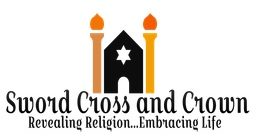
Atheism, humanism, and secularism – broad roads to self-worship
Jesus told His disciple – “’I am the way, the truth, and the life. No one comes to the Father except through Me.’” (John 14: 6) In the Gospel of John, the word “life” is found over forty times. John first said of Jesus – “In Him was life, and the life was the light of men.” (John 1: 4) Jesus first referenced “life” when He spoke to Nicodemus – “’And as Moses lifted up the serpent in the wilderness, even so must the Son of Man be lifted up, that whoever believes in Him should not perish but have eternal life.’” (John 3: 14-15) John the Baptist testified to the Jews – “’He who believes in the Son has everlasting life; and he who does not believe the Son shall not see life, but the wrath of God abides on him.’” (John 3: 36)
To the angry religious Jews who wanted to kill Him, Jesus said – “’Most assuredly, I say to you, he who hears My word and believes in Him who sent Me has everlasting life, and shall not come into judgment, but has passed from death into life.’” (John 5: 24) With pointed condemnation, Jesus told them – “’You search the Scriptures, for in them you think you have eternal life; and these are they which testify of Me. But you are not willing to come to Me that you may have life.’” (John 5: 39-40)
From a National Geographic article written in 2016, those who are religiously unaffiliated, or “nones” are the second largest religious group in North America, as well as most of Europe. Supposedly, they make up one fourth of the population of the United States. France, New Zealand, the United Kingdom, Australia, and the Netherlands are all becoming overwhelmingly secularized. However, the opposite is true in former Soviet countries, China, and Africa; where religious affiliation is growing rapidly.
Wikipedia lists more atheist organizations in America than any other country in the world. Why would this be the case? Could it be that years of prosperity find many of us trusting much more in ourselves than in God? Atheists deny the existence of God. In denying God’s existence, they magnify and affirm their own existence. They become their own god.
In denying God and His sovereignty, they magnify and exalt their own sovereignty. Many atheists are humanists. Humanism is a philosophy that emphasizes the value and agency of humans and their reason. Humanists are often secularists who define their worldview by science, denying any supernatural source.
In denying the existence and authority of a supernatural God, they themselves become the arbiters of their own existence and builders of their own codes of morality. Of necessity, they become self worshipers.
Neither atheism, humanism, or secularism offer any solution for what befalls all of us – death. They cannot reason themselves out of its inevitability. Aging, death, and disease are common to all mankind. A biblical Christian worldview offers a unique position. Death was overcome by God. Jesus was witnessed by many people after He arose alive from the dead.
God gave Paul a strong message for the Roman moralists of his day. Through him God declared – “For the wrath of God is revealed from heaven against all ungodliness and unrighteousness of men, who suppress the truth in unrighteousness, because what may be known of God is manifest in them, for God has shown it to them. For since the creation of the world His invisible attributes are clearly seen, being understood by the things that are made, even His eternal power and Godhead, so that they are without excuse, because, although they knew God, they did not glorify Him as God, nor were thankful, but became futile in their thoughts, and their foolish hearts were darkened.” (Romans 1: 18-21)
REFERENCES:
http://news.nationalgeographic.com/2016/04/160422-atheism-agnostic-secular-nones-rising-religion/




